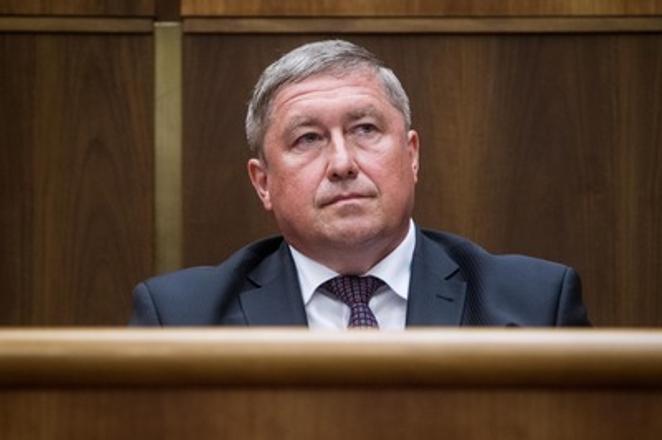Several of them can be removed, according to law, only due to extraordinary failings or if they are convicted of crime.
For example Soňa Pötheová, the Smer elected chairwoman of the Office for Personal Data Protection, is a former journalist and was head of the parliamentary communication office when this had Pavol Paška as speaker, the Sme daily wrote. Pötheová chose Smer MP Anna Vitteková as her vice chair. They both should stay in office for five years.
Another figure hard to remove is Vladimír Kešjar, chair of the Office for Regulation of Electronic Communications and Postal Services. This office regulates phone-calls and internet business. Only the three biggest operators, Orange, Telekom and O2, reported profits of €176 million in 2014.
Since 2011, Kešjar was a member of the ruling Smer party; and he was also the official of Bratislava-Ružinov district organisation of Smer. After being chosen to head the office, he had to leave the party, as law stipulates.
Already his predecessor in the office, Ladislav Mikuš, was connected with the party, as he was a nominee of former Smer transport minister Ľubomír Vážny and was elected for the position by MPs of the Smer-SNS (Slovak National Party)-HZDS (Movement for Democratic Slovakia) coalition.
Počiatek’s man oversees tenders
Since January 2014, Ján Breja is the chairman of the Transport Office; during the first term of Robert Fico government, he was an official in the Transport Ministry.
Andrej Holák is vice-chairman of the Public Procurement Office and is meant to check the fairness of tenders on which the government and the regions spend about €5 billion a year. He used to head the administration of Transport Minister Ján Počiatek. During the first Fico government, he sat on a selection committee which chose the SkyToll company to collect road tolls, even though they had the most expensive bid in the competition.
Public data show that in the last four years, Smer has not even tried to cover up its connections to people whom he sent to leading positions at regulatory and control offices, and placed MPs or rank-and-file members in key posts.
MP Viera Tomanová, for example, became the children’s ombudswoman; and Fico’s government appointed MP Mojmír Mamojka as a member of the Anti-Trust Office’s council.
Socialna poistovna state social insurer is led by Dušan Muňko of Smer, who did not even give up his parliamentary seat after he re-acceded the position. He was recalled by the government of Iveta Radičová; but this step was questioned by the Constitutional Court. The court’s finding made the dismissal of SP head more difficult also for the future, as such an official must be proven to have engaged in misconduct.
Kováčik had no rival candidate
During the past four years, Smer has prolonged public service of several officials who are hard to be sacked. For example, the Statistics Office has been led by Ľudmila Benkovičová since 2007; and Fico’s government prolonged her position in July 2012 until 2017. In 2006 and 2007, she was Fico’s advisor for communication and public opinion.
In May 2014, Smer re-elected Dušan Kováčik for special prosecutor. He has been in the position since 2004 and the term for the special prosecutor has been prolonged from five to seven years.
Under Kováčik’s leadership, the Special Prosecutor’s Office failed to uncover a single corruption case connected to top politicians. The office marked, however, successes in fight against Mafia gangs.
Though Ján Hrivnák, Ján Šanta or Peter Šufliarsky were mentioned as Kováčik’s rival candidates, Sme notes, in the final selection procedure he had no competitors.
“This probably confirms what atmosphere can be found at the prosecutor’s office,” then justice minister Lucia Žitňanská said around that time. “Only those who have had their victory secured in advance apply for the positions.”
Šipoš: This is not good
Gabriel Šípoš, head of the Transparency International Slovensko watch-dog, claims that during right wing governments, the quality of nominees for audit and regulatory offices is higher.
He points out that the takeover of the audit and regulatory apparatus by party cronies is dangerous for the country. “Control and audit offices were put outside the government exactly to make them as little depending on politics as possible, and to stand up for public interest – not oblige to party priorities. Partisan and non-expert nominations undermine this public interest,” Šípoš said.
He also reminds that in many cases, audit and regulatory offices control not just business but also state bodies themselves, like ministries.
“Any supervision cannot be effective, if there are strong connections between the supervisors and those to be supervised,” Šípoš said.



 Dušan Kováčik (source: Sme)
Dušan Kováčik (source: Sme)